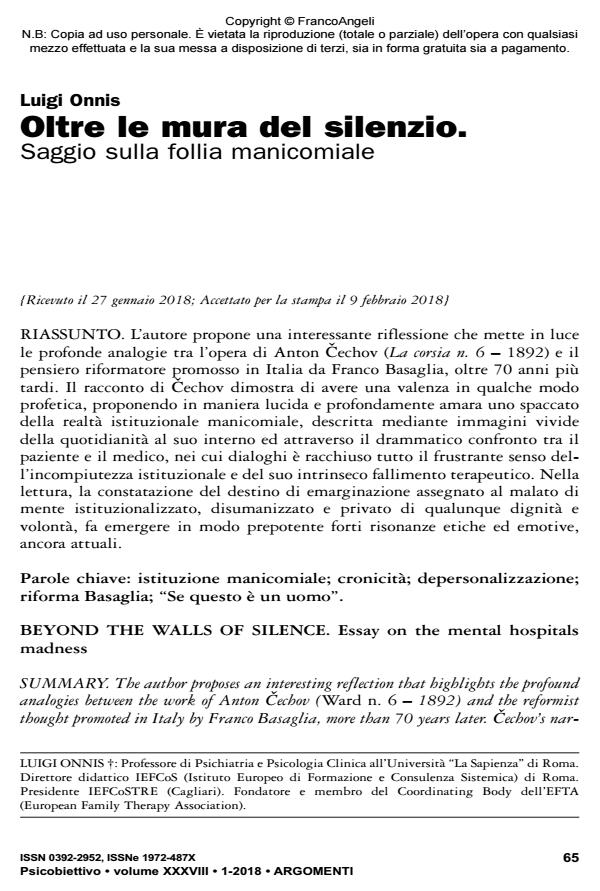Beyond the walls of silence. Essay on the mental hospitals madness
Journal title PSICOBIETTIVO
Author/s Luigi Onnis
Publishing Year 2018 Issue 2018/1
Language Italian Pages 23 P. 65-87 File size 155 KB
DOI 10.3280/PSOB2018-001005
DOI is like a bar code for intellectual property: to have more infomation
click here
Below, you can see the article first page
If you want to buy this article in PDF format, you can do it, following the instructions to buy download credits

FrancoAngeli is member of Publishers International Linking Association, Inc (PILA), a not-for-profit association which run the CrossRef service enabling links to and from online scholarly content.
The author proposes an interesting reflection that highlights the profound analogies between the work of Anton Cechov (Ward n. 6 - 1892) and the reformist thought promoted in Italy by Franco Basaglia, more than 70 years later. Cechov’s narration proves to have a prophetic value somehow, proposing in a transparent and profoundly bitter way the reality of the institution of mental hospitals. This reality picture is described through vivid images of everyday life inside the structure and through the dramatic confrontation between patient and physician, in whose dialogues all the frustrating sense of the institutional incompleteness and its intrinsic therapeutic failure is noticeable. In the lecture, the ascertainment of the destiny of marginalization assigned to the institutionalized mental patient, who is dehumanized and deprived of any dignity and will, allow for a strong ethical and emotional resonance to emerge, which is still current.
Keywords: Mental Hospital Institution; Chronicity; Depersonalization; Basaglia Reform; "Survival in Auschwitz".
Luigi Onnis, Oltre le mura del silenzio. Saggio sulla follia manicomiale in "PSICOBIETTIVO" 1/2018, pp 65-87, DOI: 10.3280/PSOB2018-001005